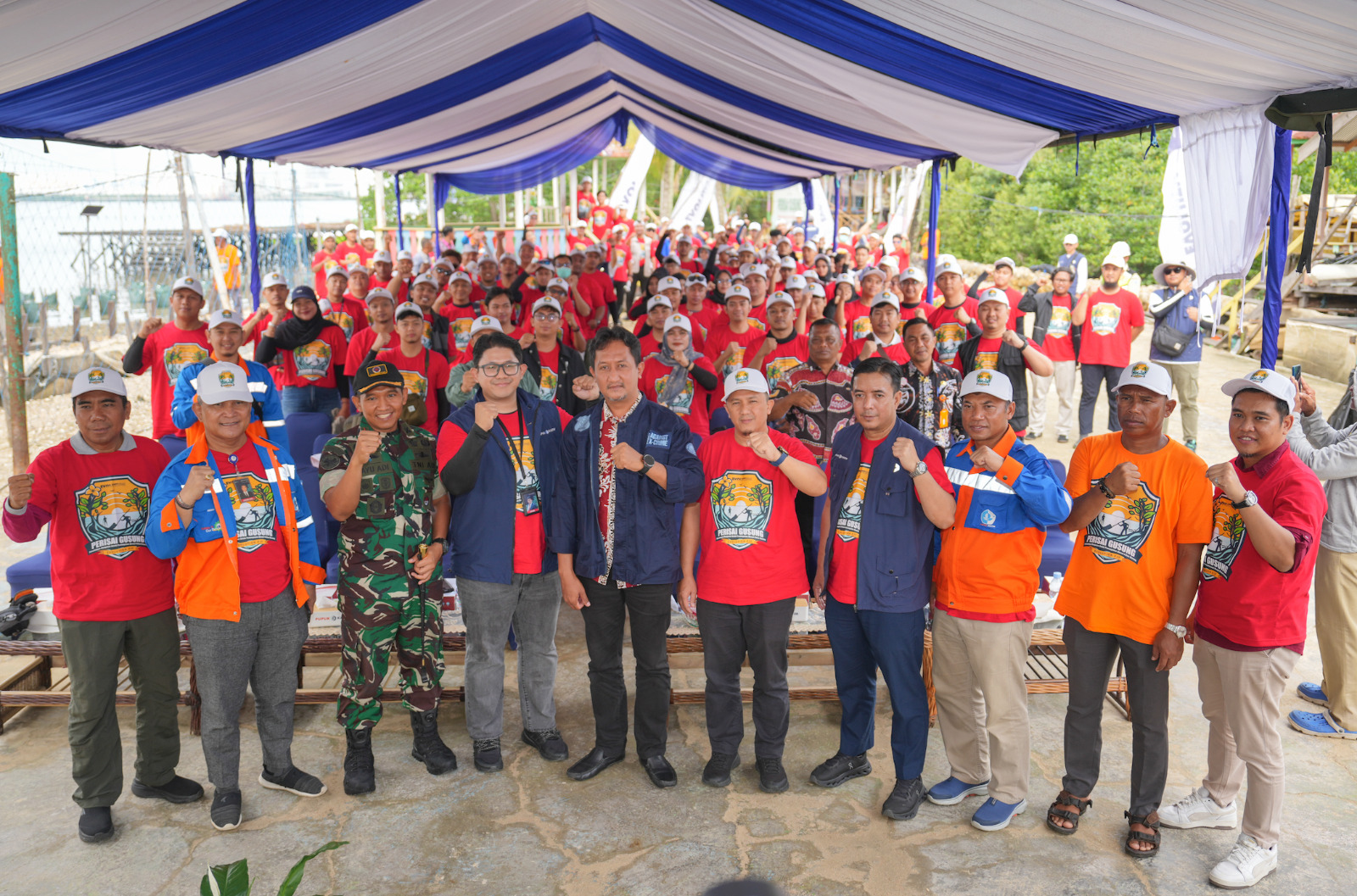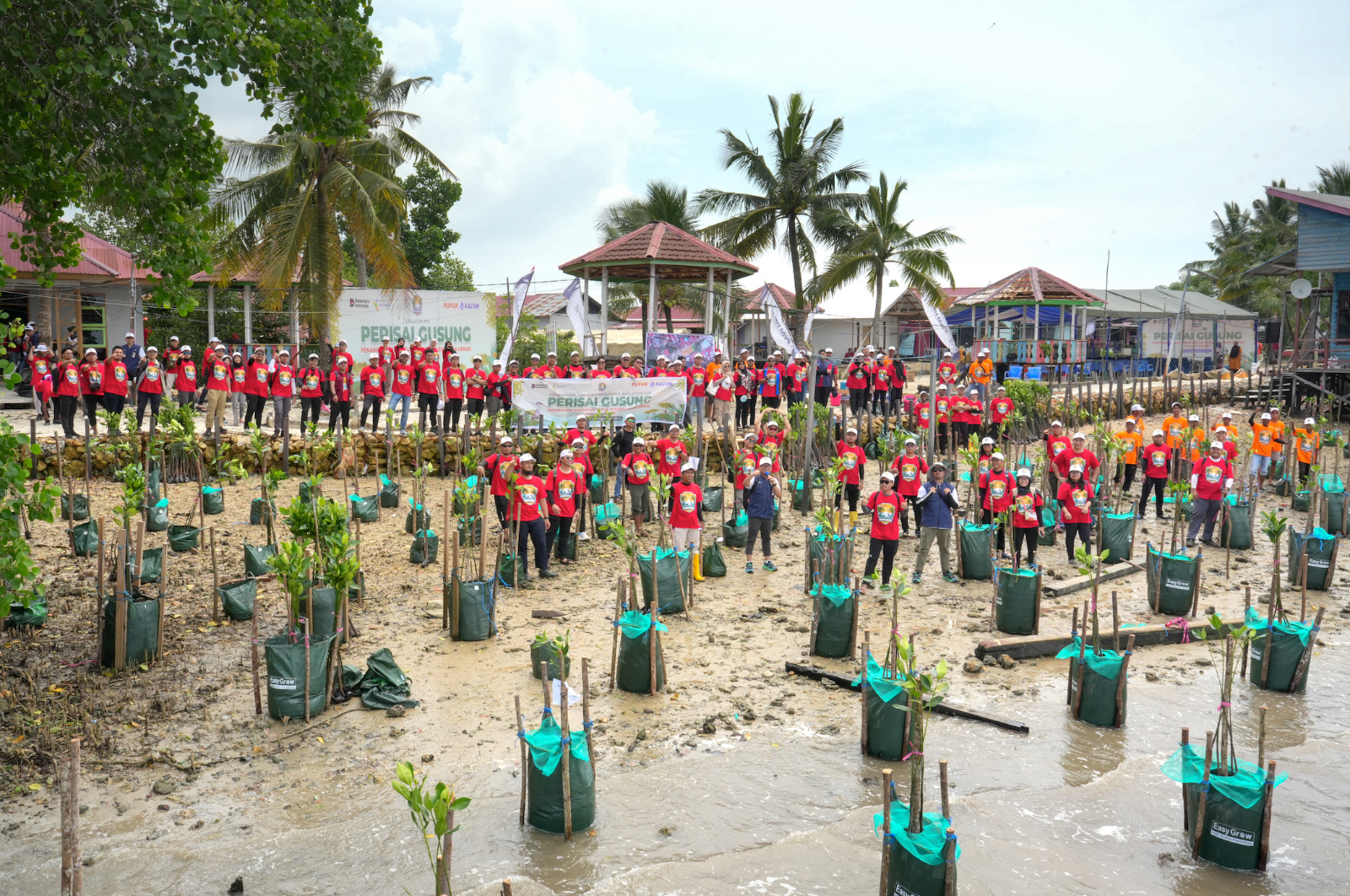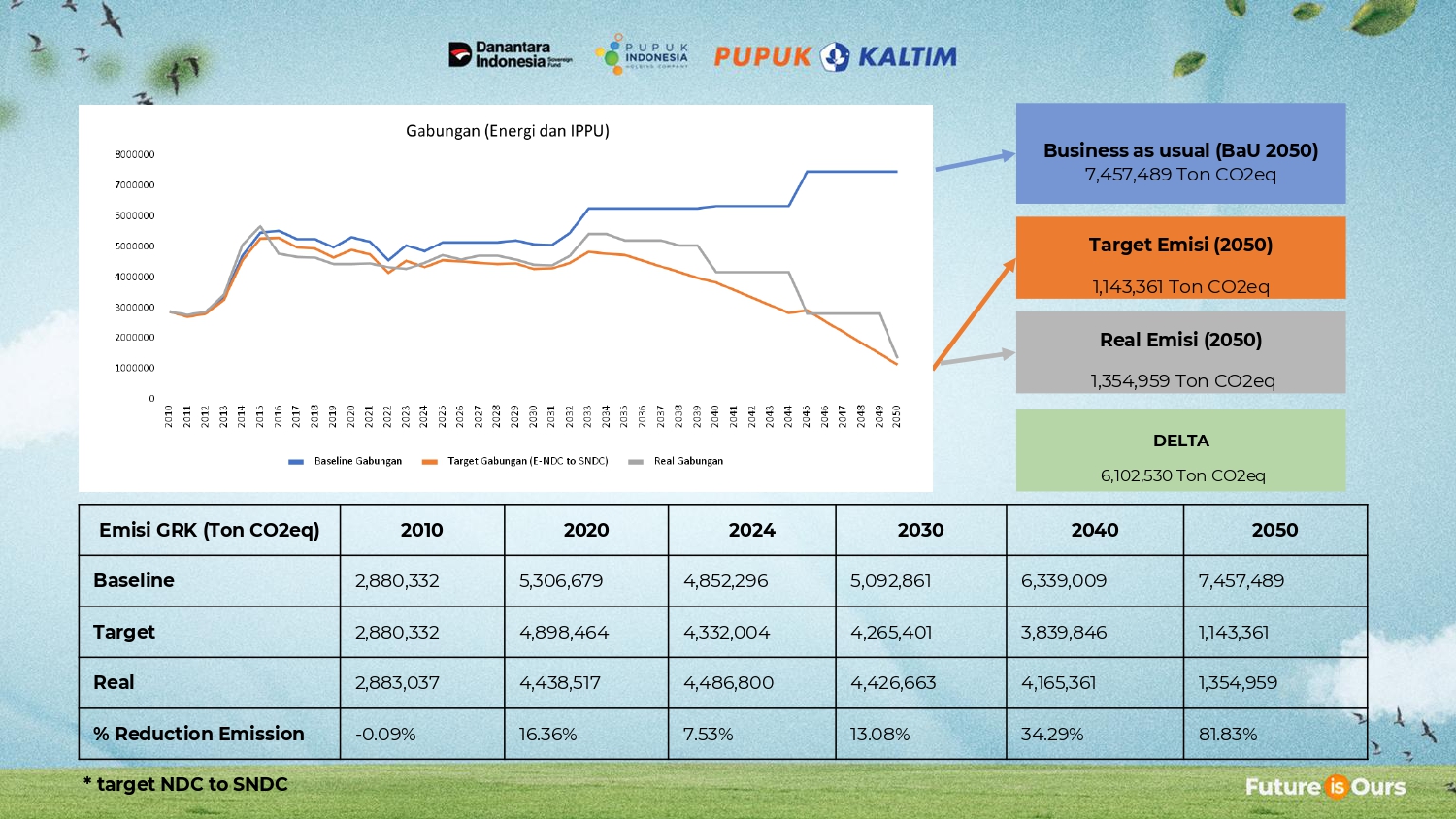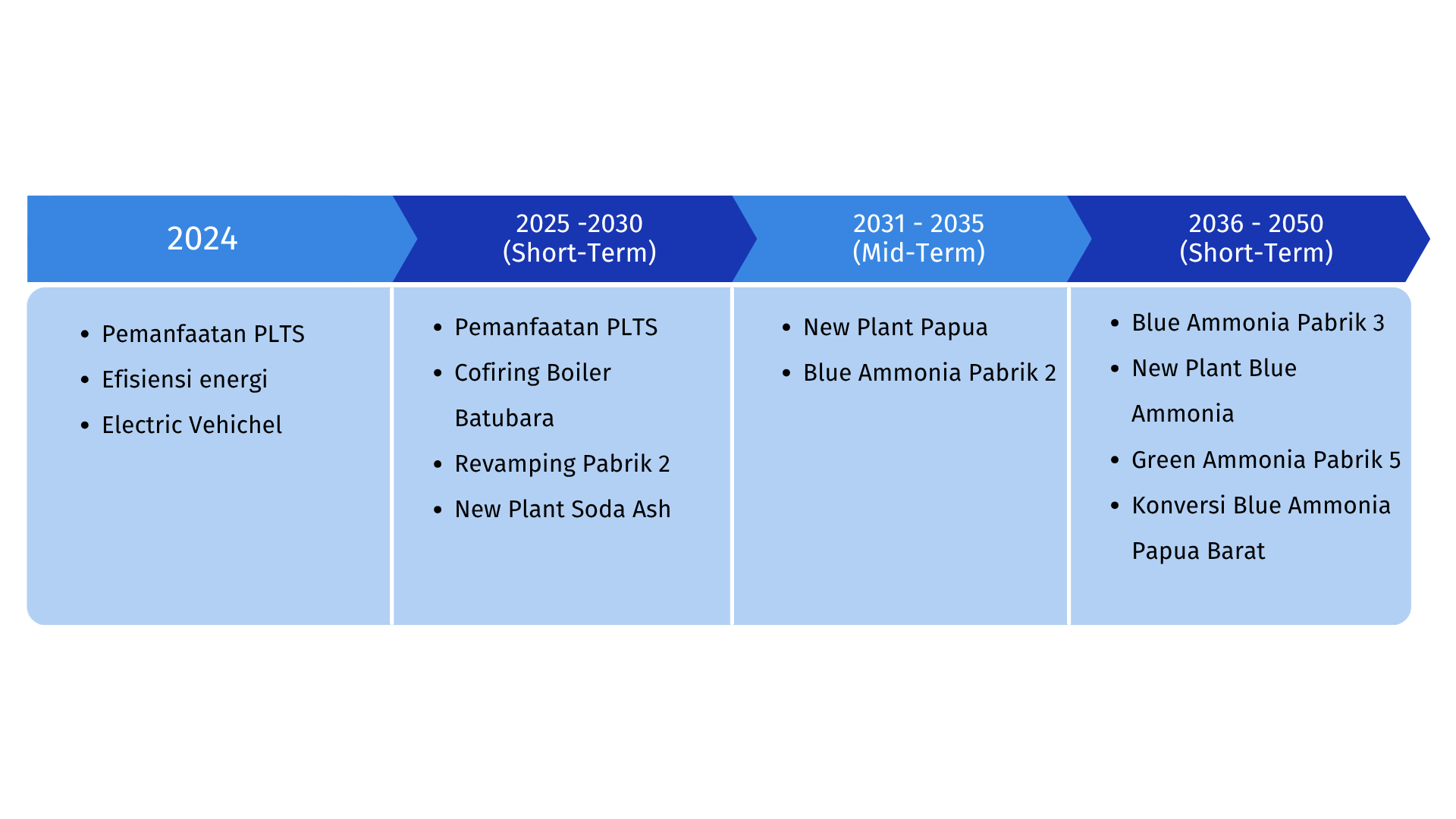Stakeholder Engagement
Pupuk Kaltim recognizes that the success of sustainability strategies cannot be separated from the active participation of all stakeholders. Therefore, Pupuk Kaltim highly values the importance of input, perspectives, and collaboration from each stakeholder group to strengthen the company's performance and business continuity.
As a manifestation of this commitment, Pupuk Kaltim routinely conducts annual reviews and evaluations of various stakeholder engagement activities and available communication channels. This effort aims to ensure that every stakeholder has the opportunity to actively engage, voice their aspirations, and provide constructive suggestions and input.
Through this approach, Pupuk Kaltim is committed to building transparent, collaborative, and sustainable relationships to create shared value and support the achievement of the company's sustainability goals.
Stakeholder Engagement Commitment
Pupuk Kalimantan Timur (PKT) is committed to maintaining constructive and sustainable relationships with all stakeholders, by prioritizing communication that is clear, inclusive, and based on mutual understanding. PKT believes that strong collaboration with various parties, including internal stakeholders, stakeholders, and surrounding communities is key to achieving long-term success. Through a proactive and responsive approach to the needs and aspirations of stakeholders, PKT focuses on creating shared value, while ensuring that sustainability principles remain the foundation of every decision and action taken.
Stakeholder Engagement Programs
PKT regularly conducts stakeholder perception surveys to evaluate local engagement strategies, compiles external communication reports that document meetings with communities, academics, government (DPRD), and police apparatus to identify issues/complaints and follow them up appropriately. As well as presenting a recapitulation of community complaints that contains complaint descriptions, follow-up actions, and resolution status as a means of monitoring and managing complaints. Stakeholder engagement programs are implemented in all local operations.
📸 Documentation of Stakeholder Engagement Program Activities in 2024


PKT regularly presents a recapitulation of community complaints that contains complaint descriptions, follow-up actions, and resolution status as a means of monitoring and managing complaints. Stakeholder engagement programs are implemented in all local operations
📋 Stakeholder Complaint Reports
PKT has a recapitulation of community complaints that contains complaint descriptions, follow-up actions, and resolution status as a means of monitoring and managing complaints. During 2024, there were 12 complaints from stakeholders that PKT has successfully handled.
🌍 Impact Assessment Through Environmental Satisfaction Survey
Pupuk Kaltim regularly conducts impact and community expectation assessments through Environmental Satisfaction Surveys to understand needs and strengthen relationships with local communities. The 2024 assessment results show that communities expect PKT to play a more active role in improving health, education, and welfare, supporting local economic empowerment through MSME development and local workforce absorption, and especially continue to innovate in environmental impact management, such as emission reduction, waste management, and implementation of environmentally friendly technology to maintain ecosystem sustainability around the company's operational areas.
Environmental Satisfaction Key Performance Indicator (KPI) Values of Pupuk Kalimantan Timur 2024
| Environmental Satisfaction Value of Pupuk Kaltim 2024 | Number of Respondents | Score | Rating |
|---|---|---|---|
| Environmental Satisfaction Value of Pupuk Kaltim 2024 | 348 | 90.48 | Very Satisfied |
Pupuk Kaltim is committed to conducting business sustainably by implementing a strong and integrated sustainability governance system from oversight to execution. This commitment is realized through active supervision by the Board of Commissioners, supported by committees below it, namely the Good Corporate Governance, Human Resources, Nomination & Remuneration, and Investment (KGSRI) Committees, which play an active role in ensuring that policies, targets, and sustainability performance, including climate-related issues, are carried out consistently, transparently, and in accordance with standards.
The Board of Directors plays a central role in the company's sustainability governance structure. The Board provides strategic direction and oversees the ESG Governance Team in implementing sustainability initiatives. This role is formalized through specific Key Performance Indicators (KPIs), ratified through the General Meeting of Shareholders (GMS), including an emission reduction target of 13,260 tons of CO2e in 2024. The achievement of these sustainability KPIs is a key component in the performance evaluation of the Board of Directors and is directly linked to the compensation system.
At the operational level, the ESG Governance Team becomes the main driver in planning and implementing various sustainability initiatives, including decarbonization, energy efficiency, and strengthening social responsibility. Collaboration between the Board of Commissioners' Committees and the ESG Team ensures that Pupuk Kaltim’s sustainability agenda is implemented consistently, measurably, and with a tangible impact on the environment and stakeholders.
The monitoring and implementation flow of the Company’s sustainability efforts are as follows:
Board of Commissioners
Dewan Komisaris
KGSRI Committee
Komite KGSRI
Board of Directors
Dewan Direksi
Chief of ESG Governance Team
Ketua Tim Tata Kelola ESG
ESG Governance Working Team
Tim Pelaksana Tata Kelola ESG
Materiality Topics Determination Process
Pupuk Kaltim conducts periodic assessments of material sustainability issues relevant to its business operations, covering Environmental, Social, and Governance (ESG) dimensions. This process adopts a double materiality approach, which consists of:
Impact Materiality
Considering actual or potential impacts, both positive and negative, on society and the environment, based on Pupuk Kaltim's operations and stakeholder expectations throughout the value chain.
Financial Materiality
Assessing sustainability-related risks and opportunities that may affect Pupuk Kaltim's performance, development, and financial position.
Pupuk Kaltim assesses material topics by considering internationally recognized sustainability reporting standards, namely Global Reporting Initiative (GRI) Standards 2021 and AA1000 Accountability Principles: AA1000AP (2018).
Materiality Assessment Mechanism
As a company committed to sustainability principles, Pupuk Kaltim implements a systematic, transparent materiality assessment process that aligns with global standards. This process ensures that the company's sustainability strategy aligns with stakeholder priorities and is able to identify and manage long-term risks and opportunities for the business.
The methodology used includes: Focus Group Discussion (FGD) with stakeholders to provide their respective opinions according to their background of interests.
Standard and Peer Identification
Issue and Impact Identification
Impact Assessment and Validation
Double Materiality Assessment
Materiality Assessment Results
Material Topics Identified
All relevant and aligned with GRI Topic Standards
The review results identified 26 material topics that are all relevant and aligned with GRI Topic Standards. These topics are mapped in a materiality matrix, integrated into the Enterprise Risk Management (ERM) process, and adopt the double materiality principle.
With this approach, Pupuk Kaltim ensures that every material issue is identified comprehensively, data-driven, and reflects the perspectives of various stakeholders. This process becomes an important foundation in formulating sustainability strategies, risk management, and achieving long-term ESG targets. Every stage of this assessment process has been verified by independent external parties.
Pupuk Kaltim is committed to continuously improving the materiality assessment methodology to be able to capture issues that are relevant and have a significant impact on company performance and long-term sustainability.
📖 Further information regarding Pupuk Kaltim's Materiality Assessment process can be found in the Pupuk Kaltim Sustainability Report 2024 pages 72-77
🌍 Association Membership Alignment with Paris Agreement
Pupuk Kalimantan Timur (PKT) is committed to ensuring that all activities and strategic association memberships align with sustainability principles and the goals of the Paris Agreement. This commitment includes PKT's active participation in various national and international associations, such as the International Fertilizer Association (IFA), Responsible Care Indonesia (RCI), and the United Nations Global Compact (UNGC).
Through these memberships, PKT participates in global and national forums to strengthen responsible fertilizer industry practices, prioritizing energy efficiency, safe chemical management, and carbon emission reduction efforts. PKT regularly reviews the alignment of association policy directions and activities with the company's sustainability vision and national and global decarbonization targets.
⚖️ Management and Governance
PKT's activities in these associations are managed by relevant units according to their respective fields, under the coordination and supervision of top management. This governance mechanism ensures that every PKT involvement supports the company's sustainability strategy, including improving environmental, social, and governance (ESG) performance, as well as making real contributions to achieving the Sustainable Development Goals (SDGs).
🔄 Misalignment Handling
If there are differences in policy positions or strategic directions between PKT and the associations it follows, the company will prioritize dialogue and constructive communication to promote alignment. If these differences cannot be bridged, PKT will consider reducing its active role or terminating membership to ensure consistency with Good Corporate Governance (GCG) principles and commitment to sustainability.
📋 Association Membership Table
Table of Association Membership
🌱 PKT's Commitment Towards Net Zero Emission 2050
Pupuk Kaltim is committed to reducing Greenhouse Gas (GHG) emissions to achieve Net Zero Emission by 2050. This commitment is based on the company's desire to contribute to global climate change control, as agreed upon by various countries in the Paris Agreement and ratified by the Indonesian Government. Therefore, Pupuk Kaltim has developed a Net Zero Emission 2050 roadmap with reference to emission reduction targets for the energy and IPPU sectors in Indonesia's Nationally Determined Contribution (NDC) (for roadmap until 2030) and Secondary Nationally Determined Contribution (for roadmap 2030 - 2050). Through these two commitments, Indonesia targets limiting global temperature rise below 2°C and strives to limit it to 1.5°C above pre-industrial levels, as agreed in the Paris Agreement.
📊 Baseline and Emission Targets
As an initial step in the journey towards Net Zero Emission (NZE), Pupuk Kaltim has established the base year for GHG emission calculations as 2010. Subsequently, the company has set strategies for gradual emission reduction until 2050, considering technology availability and future plant development plans. Pupuk Kaltim's emission target for 2024 is 4,332,004 tons CO₂e, which is a combination of Scope 1 and Scope 2 emissions. This target covers Energy and IPPU sectors adjusted to NDC targets.
In setting emission reduction targets, PKT uses Indonesia's NDC and SNDC as reference, where emission categorization is not based on scope like the GHG Protocol standard, but rather regulates Indonesia's emission targets based on sectors namely IPPU, Energy (including electricity, transportation, industry), and others. Based on this, target calculations are performed by combining Scope 1 and Scope 2 emissions, resulting in a more comprehensive picture of Pupuk Kaltim's total operational emissions and the effectiveness of its reduction strategies.
Pupuk Kaltim has developed a long-term decarbonization roadmap as a strategic guide to reduce emissions gradually and sustainably until achieving Net Zero Emission by 2050. This roadmap is designed considering low-carbon technology developments, energy efficiency improvements, renewable energy utilization, and carbon offset initiatives. Through this step, Pupuk Kaltim's decarbonization efforts are expected to remain consistent with national NDC targets and aligned with global commitments in the Paris Agreement.
🗺️ PKT Decarbonization Roadmap
Pupuk Kaltim's decarbonization roadmap illustrates a progressive emission reduction trajectory. In this roadmap, Pupuk Kaltim projects emission reduction achievements followed by gradual reductions until achieving net zero by 2050. This roadmap graph shows emission reductions consistent with Indonesia's fertilizer industry decarbonization scenario.

🚀 Strategic Initiatives in Low Carbon Transition
To achieve these emission reduction targets, Pupuk Kaltim has identified and implemented a number of strategic initiatives covering technology, operations, and environmental management aspects. This series of initiatives not only focuses on internal efficiency, but also on developing innovative solutions that have broad impact on the value chain and stakeholders.

Efforts towards Net Zero Emission not only focus on emission reduction, but also on comprehensive transformation towards a green and sustainable business model. Pupuk Kaltim positions decarbonization as the core of its long-term growth strategy by integrating environmental, social, and governance (ESG) aspects into all business processes.
Furthermore, Pupuk Kaltim actively promotes collaboration with various parties, including government, research institutions, and industry partners, to develop a resilient and inclusive low-carbon industry ecosystem.
Through these strategic steps, Pupuk Kaltim affirms its role as a pioneer of sustainable fertilizer industry in Indonesia that not only contributes to national food security, but also participates in maintaining global climate resilience.


